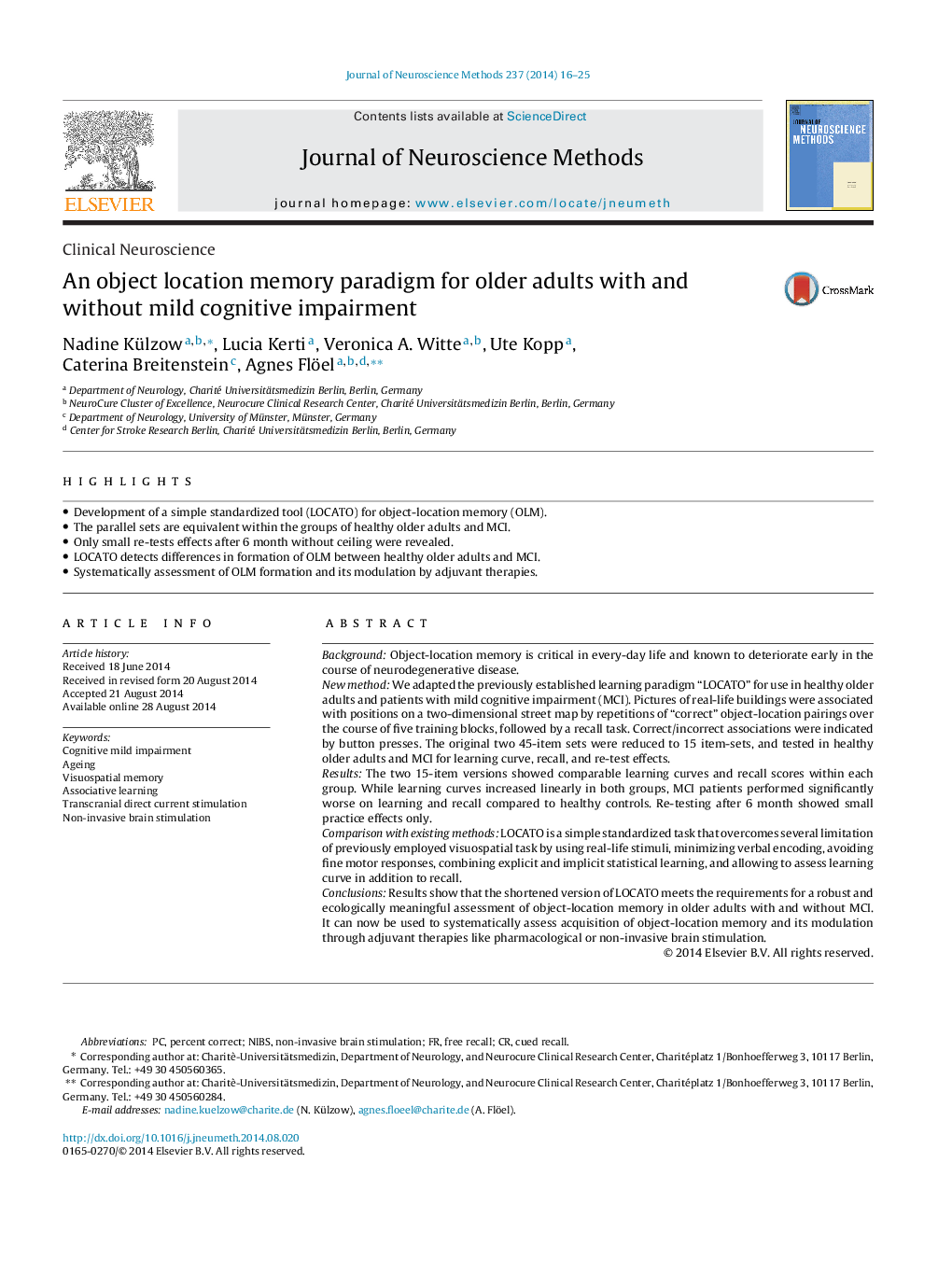| Article ID | Journal | Published Year | Pages | File Type |
|---|---|---|---|---|
| 6268457 | Journal of Neuroscience Methods | 2014 | 10 Pages |
â¢Development of a simple standardized tool (LOCATO) for object-location memory (OLM).â¢The parallel sets are equivalent within the groups of healthy older adults and MCI.â¢Only small re-tests effects after 6 month without ceiling were revealed.â¢LOCATO detects differences in formation of OLM between healthy older adults and MCI.â¢Systematically assessment of OLM formation and its modulation by adjuvant therapies.
BackgroundObject-location memory is critical in every-day life and known to deteriorate early in the course of neurodegenerative disease.New methodWe adapted the previously established learning paradigm “LOCATO” for use in healthy older adults and patients with mild cognitive impairment (MCI). Pictures of real-life buildings were associated with positions on a two-dimensional street map by repetitions of “correct” object-location pairings over the course of five training blocks, followed by a recall task. Correct/incorrect associations were indicated by button presses. The original two 45-item sets were reduced to 15 item-sets, and tested in healthy older adults and MCI for learning curve, recall, and re-test effects.ResultsThe two 15-item versions showed comparable learning curves and recall scores within each group. While learning curves increased linearly in both groups, MCI patients performed significantly worse on learning and recall compared to healthy controls. Re-testing after 6 month showed small practice effects only.Comparison with existing methodsLOCATO is a simple standardized task that overcomes several limitation of previously employed visuospatial task by using real-life stimuli, minimizing verbal encoding, avoiding fine motor responses, combining explicit and implicit statistical learning, and allowing to assess learning curve in addition to recall.ConclusionsResults show that the shortened version of LOCATO meets the requirements for a robust and ecologically meaningful assessment of object-location memory in older adults with and without MCI. It can now be used to systematically assess acquisition of object-location memory and its modulation through adjuvant therapies like pharmacological or non-invasive brain stimulation.
